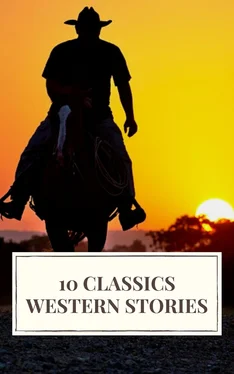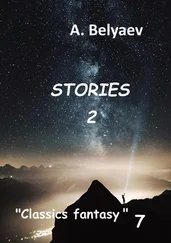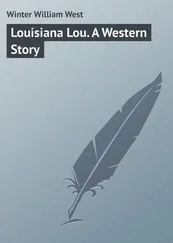Samuel Merwin - 10 Classics Western Stories
Здесь есть возможность читать онлайн «Samuel Merwin - 10 Classics Western Stories» — ознакомительный отрывок электронной книги совершенно бесплатно, а после прочтения отрывка купить полную версию. В некоторых случаях можно слушать аудио, скачать через торрент в формате fb2 и присутствует краткое содержание. Жанр: unrecognised, на английском языке. Описание произведения, (предисловие) а так же отзывы посетителей доступны на портале библиотеки ЛибКат.
- Название:10 Classics Western Stories
- Автор:
- Жанр:
- Год:неизвестен
- ISBN:нет данных
- Рейтинг книги:3 / 5. Голосов: 1
-
Избранное:Добавить в избранное
- Отзывы:
-
Ваша оценка:
- 60
- 1
- 2
- 3
- 4
- 5
10 Classics Western Stories: краткое содержание, описание и аннотация
Предлагаем к чтению аннотацию, описание, краткое содержание или предисловие (зависит от того, что написал сам автор книги «10 Classics Western Stories»). Если вы не нашли необходимую информацию о книге — напишите в комментариях, мы постараемся отыскать её.
The novels are sorted alphabetically by the authors.
Content:
The Log of a Cowboy by Andy Adams
The Bridge of the Gods by Frederic Homer Balch
The Lure of the Dim Trails by B.M. Bower
Hidden Water by Dane Coolidge
The Last of the Mohicans by James Fenimore Cooper
The Prairie by James Fenimore Cooper
Salomy Jane by Bret Harte
Astoria by Washington Irving
The road to Frontenac by Samuel Merwin
That Girl Montana by Marah Ellis Ryan
10 Classics Western Stories — читать онлайн ознакомительный отрывок
Ниже представлен текст книги, разбитый по страницам. Система сохранения места последней прочитанной страницы, позволяет с удобством читать онлайн бесплатно книгу «10 Classics Western Stories», без необходимости каждый раз заново искать на чём Вы остановились. Поставьте закладку, и сможете в любой момент перейти на страницу, на которой закончили чтение.
Интервал:
Закладка:
McCann had been frozen out during Roundtree's yarn, and had joined the crowd of story-tellers on the other side of the fire. Forrest was feeling quite gala, and took a special delight in taunting the vanquished as they dropped out.
"Is McCann there?" inquired he, well knowing he was. "I just wanted to ask, would it be any trouble to poach that egg for my breakfast and serve it with a bit of toast; I'm feeling a little bit dainty. You'll poach it for me, won't you, please?"
McCann never moved a muscle as he replied, "Will you please go to hell?"
The story-telling continued for some time, and while Fox Quarternight was regaling us with the history of a little black mare that a neighbor of theirs in Kentucky owned, a dispute arose in the card game regarding the rules of discard and draw.
"I'm too old a girl," said The Rebel, angrily, to Forrest, "to allow a pullet like you to teach me this game. When it's my deal, I'll discard just when I please, and it's none of your business so long as I keep within the rules of the game;" which sounded final, and the game continued.
Quarternight picked up the broken thread of his narrative, and the first warning we had of the lateness of the hour was Bull Durham calling to us from the game, "One of you fellows can have my place, just as soon as we play this jack pot. I've got to saddle my horse and get ready for our guard. Oh, I'm on velvet, anyhow, and before this game ends, I'll make old Quince curl his tail; I've got him going south now."
It took me only a few minutes to lose my chance at the turkey egg, and I sought my blankets. At one A.M., when our guard was called, the beans were almost equally divided among Priest, Stallings, and Durham; and in view of the fact that Forrest, whom we all wanted to see beaten, had met defeat, they agreed to cut the cards for the egg, Stallings winning. We mounted our horses and rode out into the night, and the second guard rode back to our camp-fire, singing:—
"Two little niggers upstairs in bed, One turned ober to de oder an' said, 'How 'bout dat short'nin' bread, How 'bout dat short'nin' bread?'"
Chapter 13 Dodge
At Camp Supply, Flood received a letter from Lovell, requesting him to come on into Dodge ahead of the cattle. So after the first night's camp above the Cimarron, Flood caught up a favorite horse, informed the outfit that he was going to quit us for a few days, and designated Quince Forrest as the segundo during his absence.
"You have a wide, open country from here into Dodge," said he, when ready to start, "and I'll make inquiry for you daily from men coming in, or from the buckboard which carries the mail to Supply. I'll try to meet you at Mulberry Creek, which is about ten miles south of Dodge. I'll make that town to-night, and you ought to make the Mulberry in two days. You will see the smoke of passing trains to the north of the Arkansaw, from the first divide south of Mulberry. When you reach that creek, in case I don't meet you, hold the herd there and three or four of you can come on into town. But I'm almost certain to meet you," he called back as he rode away.
"Priest," said Quince, when our foreman had gone, "I reckon you didn't handle your herd to suit the old man when he left us that time at Buffalo Gap. But I think he used rare judgment this time in selecting a segundo. The only thing that frets me is, I'm afraid he'll meet us before we reach the Mulberry, and that won't give me any chance to go in ahead like a sure enough foreman. Fact is I have business there; I deposited a few months' wages at the Long Branch gambling house last year when I was in Dodge, and failed to take a receipt. I just want to drop in and make inquiry if they gave me credit, and if the account is drawing interest. I think it's all right, for the man I deposited it with was a clever fellow and asked me to have a drink with him just as I was leaving. Still, I'd like to step in and see him again."
Early in the afternoon of the second day after our foreman left us, we sighted the smoke of passing trains, though they were at least fifteen miles distant, and long before we reached the Mulberry, a livery rig came down the trail to meet us. To Forrest's chagrin, Flood, all dressed up and with a white collar on, was the driver, while on a back seat sat Don Lovell and another cowman by the name of McNulta. Every rascal of us gave old man Don the glad hand as they drove around the herd, while he, liberal and delighted as a bridegroom, passed out the cigars by the handful. The cattle were looking fine, which put the old man in high spirits, and he inquired of each of us if our health was good and if Flood had fed us well. They loitered around the herd the rest of the evening, until we threw off the trail to graze and camp for the night, when Lovell declared his intention of staying all night with the outfit.
While we were catching horses during the evening, Lovell came up to me where I was saddling my night horse, and recognizing me gave me news of my brother Bob. "I had a letter yesterday from him," he said, "written from Red Fork, which is just north of the Cimarron River over on the Chisholm route. He reports everything going along nicely, and I'm expecting him to show up here within a week. His herd are all beef steers, and are contracted for delivery at the Crow Indian Agency. He's not driving as fast as Flood, but we've got to have our beef for that delivery in better condition, as they have a new agent there this year, and he may be one of these knowing fellows. Sorry you couldn't see your brother, but if you have any word to send him, I'll deliver it."
I thanked him for the interest he had taken in me, and assured him that I had no news for Robert; but took advantage of the opportunity to inquire if our middle brother, Zack Quirk, was on the trail with any of his herds. Lovell knew him, but felt positive he was not with any of his outfits.
We had an easy night with the cattle. Lovell insisted on standing a guard, so he took Rod Wheat's horse and stood the first watch, and after returning to the wagon, he and McNulta, to our great interest, argued the merits of the different trails until near midnight. McNulta had two herds coming in on the Chisholm trail, while Lovell had two herds on the Western and only one on the Chisholm.
The next morning Forrest, who was again in charge, received orders to cross the Arkansaw River shortly after noon, and then let half the outfit come into town. The old trail crossed the river about a mile above the present town of Dodge City, Kansas, so when we changed horses at noon, the first and second guards caught up their top horses, ransacked their war bags, and donned their best toggery. We crossed the river about one o'clock in order to give the boys a good holiday, the stage of water making the river easily fordable. McCann, after dinner was over, drove down on the south side for the benefit of a bridge which spanned the river opposite the town. It was the first bridge he had been able to take advantage of in over a thousand miles of travel, and to-day he spurned the cattle ford as though he had never crossed at one. Once safely over the river, and with the understanding that the herd would camp for the night about six miles north on Duck Creek, six of our men quit us and rode for the town in a long gallop. Before the rig left us in the morning, McNulta, who was thoroughly familiar with Dodge, and an older man than Lovell, in a friendly and fatherly spirit, seeing that many of us were youngsters, had given us an earnest talk and plenty of good advice.
"I've been in Dodge every summer since '77," said the old cowman, "and I can give you boys some points. Dodge is one town where the average bad man of the West not only finds his equal, but finds himself badly handicapped. The buffalo hunters and range men have protested against the iron rule of Dodge's peace officers, and nearly every protest has cost human life. Don't ever get the impression that you can ride your horses into a saloon, or shoot out the lights in Dodge; it may go somewhere else, but it don't go there. So I want to warn you to behave yourselves. You can wear your six-shooters into town, but you'd better leave them at the first place you stop, hotel, livery, or business house. And when you leave town, call for your pistols, but don't ride out shooting; omit that. Most cowboys think it's an infringement on their rights to give up shooting in town, and if it is, it stands, for your six-shooters are no match for Winchesters and buckshot; and Dodge's officers are as game a set of men as ever faced danger."
Читать дальшеИнтервал:
Закладка:
Похожие книги на «10 Classics Western Stories»
Представляем Вашему вниманию похожие книги на «10 Classics Western Stories» списком для выбора. Мы отобрали схожую по названию и смыслу литературу в надежде предоставить читателям больше вариантов отыскать новые, интересные, ещё непрочитанные произведения.
Обсуждение, отзывы о книге «10 Classics Western Stories» и просто собственные мнения читателей. Оставьте ваши комментарии, напишите, что Вы думаете о произведении, его смысле или главных героях. Укажите что конкретно понравилось, а что нет, и почему Вы так считаете.












